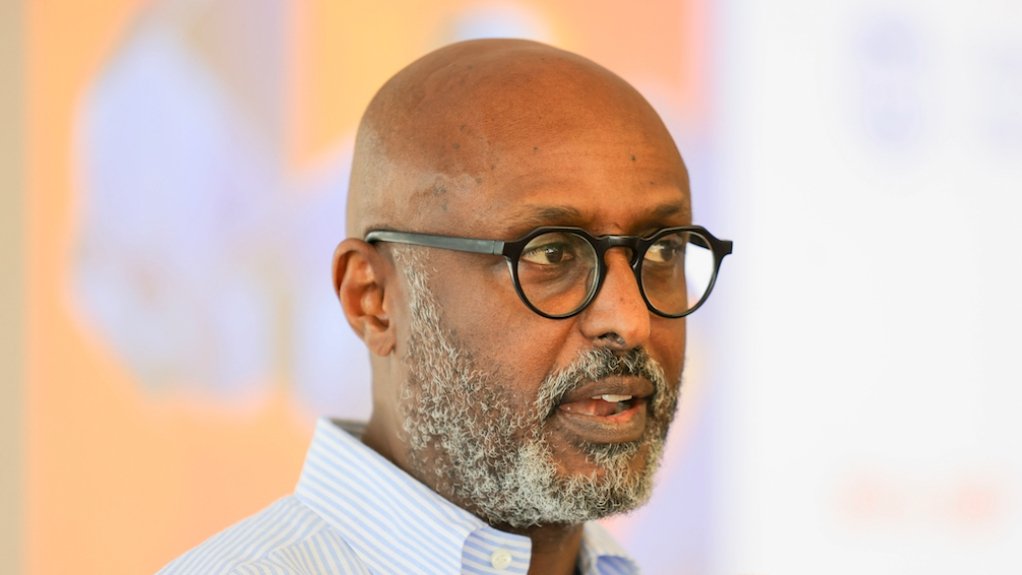Various shocks have resulted in commodity price pressure and fiscal constraints globally, but sub-Saharan African countries, in particular, have been experiencing a “funding squeeze” as a result of these events, which necessitates a rethink about financing solutions and policy direction.
Speaking on the topic at the University of the Witwatersrand (Wits) on March 13, International Monetary Fund African development director Abebe Selassie said the funding shortfalls in the region have resulted in many countries, particularly South Africa, having high public debt levels.
He noted that, from the turn of the century until the onset of the Covid-19 pandemic, most African countries had periods of high economic growth and much development progress, which reflected successful domestic reforms, a favourable external environment with much resource demand and ample financing resulting from capital flows to the region.
However, since a commodity cycle downturn in 2015, growth started decelerating in many resource-rich countries, especially oil exporters. The period from 2020 to 2023 brought on a series of shocks, including the pandemic, the Ukraine war and other conflicts and financial markets tightening owing to aggressive policy.
These factors have exacerbated borrowing costs, reducing funding inflows and foreign direct investment, including in the emerging markets of sub-Saharan Africa.
However, after a difficult few years, a long-awaited rebound was on the horizon, with global economic conditions improving and inflation and rates easing, Selassie stated.
He cautioned, however, that these countries were not yet “out of the woods” as high debt levels remained.
Selassie elaborated that South Africa, Nigeria and Ghana were among the countries in the region that had returned to the international finance market, but given that sizeable uncertainties remained on China’s internal restricting and prevailing challenges in sectors such as property, it remained to be seen what the knock-on impacts would be to emerging markets.
In South Africa’s case, Selassie said, the country had historically been reliant on portfolio inflows from around the world, but this trend had reversed as of late, with more outflows occurring. He noted that domestic investment opportunities had not been attractive enough to keep capital flows in the country.
Additionally, both corporate and sovereign bond issuances have been declining, as foreign investor confidence has eroded.
It helped that South Africa had a large financial sector, as the government had had to increasingly rely on domestic borrowing. However, Selassie explained that South Africa’s public debt situation was testament to the low economic growth in recent years.
“Prospects remain weak without resolute reforms to address growth impediments and fiscal sustainability concerns.”
Selassie listed some of South Africa’s strategic strengths as being the fact that a large chunk of its sovereign debt was in domestic currency, that it had a robust monetary policy framework and a flexible exchange rate.
Some of the weaknesses, on the other hand, include low economic growth, high and rising debt stock and the fact that current fiscal policy is not focused on debt stabilisation and fixing the primary balance.
Wits School of Economics and Finance Associate Professor Ismail Fasanya agreed that sub-Saharan Africa’s funding choices had deteriorated dramatically in the past year and that the acceleration of global monetary policy tightening had resulted in high interest rates worldwide and increased borrowing costs in sub-Saharan African countries.
He said tight financing conditions were likely to persist amid still high inflation and geopolitical fragmentation which were impacting on aid flows – for example, China was becoming more prudent with its lending.
Another contributing factor to a longer-term funding squeeze is the fact that developed markets and investors are directing funding to climate change needs.
At national level, a funding squeeze forces countries to reduce resources for critical developments in sectors such as health and education, while it weakens economic growth prospects.
Fasanya echoed Selassie’s sentiments that sub-Saharan African countries needed fiscal policies to shift in focus towards reducing debt vulnerabilities and adapting to the tighter financing environment.
He expressed confidence that the funding shortfalls of late would shape short-term policy options and fuel a need to build resilience by unlocking new sources of funding.
Wits School of Economics and Finance Professor Bruno Tinel also pointed out how South Africa had not been attracting capital, but rather exporting capital. He said the consistent degradation of the rand since 2005 reflected the level of investor confidence in the country to a large extent.
He explained that a positive net international investment position meant that the country had financial potential, but also meant that investors preferred to take money elsewhere.
Tinel questioned whether it was reasonable to expect an even more restrictive monetary policy to solve these problems. Rather, he said a focus on gaining the trust of investors was necessary, both locally and internationally.
Wits School of Economics senior lecturer and Presidential Economic Advisory Council member Dr Kenneth Creamer said it was important to address the State’s inability to instill confidence, while more effective engagement was needed internationally to stop the “begging bowl” approach to source funding.
Selassie agreed with the other speakers that the financing landscape would have to change towards own resources, including domestic resources in the private sector, to advance investment.
He said he was confident that sub-Saharan Africa could successfully rebound and further transform to improve economies and livelihoods.
EMAIL THIS ARTICLE SAVE THIS ARTICLE ARTICLE ENQUIRY
To subscribe email subscriptions@creamermedia.co.za or click here
To advertise email advertising@creamermedia.co.za or click here













